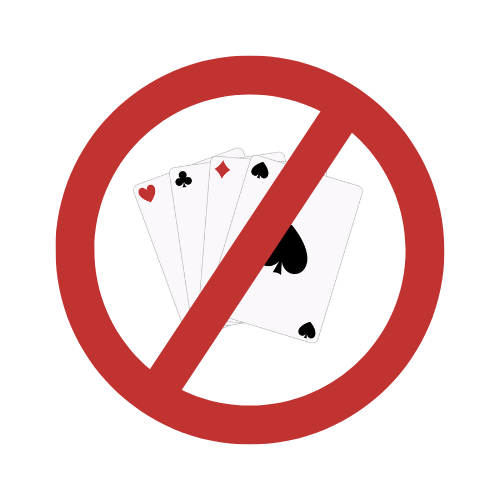What is an Addiction?
Addiction is a complex and multifaceted condition that affects millions of people worldwide. It is characterised by compulsive engagement in rewarding stimuli, despite adverse consequences. This blog post delves into the nature of addiction, its causes, types, and the impact it has on individuals and society. Understanding addiction is crucial for developing effective prevention and treatment strategies.
Defining Addiction
Addiction can be broadly defined as a chronic disorder characterised by the compulsive use of a substance or engagement in a behavior, despite negative consequences. It involves a psychological and often physical dependence on a substance or activity, which can include drugs, alcohol, gambling, and even internet use.
The American Society of Addiction Medicine (ASAM) defines addiction as
“a treatable, chronic medical disease involving complex interactions among brain circuits, genetics, the environment, and an individual’s life experiences. People with addiction use substances or engage in behaviors that become compulsive and often continue despite harmful consequences” .
Types of Addiction
Addictions can be broadly categorized into two main types: substance addictions and behavioral addictions.
- Substance Addictions: These involve the dependence on drugs or alcohol. Common substances associated with addiction include:
- Alcohol: One of the most prevalent forms of addiction, leading to various health issues, including liver disease and cardiovascular problems.
- Nicotine: Found in tobacco products, nicotine addiction can lead to respiratory issues and various cancers.
- Opioids: Both prescription painkillers and illegal drugs like heroin fall into this category, often leading to severe health complications and overdose.
- Stimulants: Drugs such as cocaine and methamphetamine, which can cause severe mental and physical health issues.
- Behavioral Addictions: These involve compulsive engagement in non-substance-related behaviors. Common examples include:
- Gambling: Characterised by the inability to stop gambling despite negative financial and social consequences.
- Internet and Gaming: Increasingly recognised as significant issues, particularly among younger populations, leading to concerns about mental health and social interactions.
- Shopping: Compulsive buying can lead to financial problems and personal distress.
Causes of Addiction
The development of addiction is influenced by a combination of genetic, environmental, and psychological factors.
- Genetic Factors: Research indicates that genetics can play a significant role in the likelihood of developing an addiction. Individuals with a family history of addiction are at higher risk .
- Environmental Factors: Factors such as peer pressure, exposure to drugs or alcohol at a young age, and stress can contribute to the development of addiction. Socioeconomic status and living conditions also play crucial roles.
- Psychological Factors: Mental health disorders such as depression, anxiety, and trauma can increase the susceptibility to addiction. Individuals often use substances or behaviors as a coping mechanism to deal with psychological distress.
- Trauma: Lasting emotional responses that often results from living through distressing events.
The Impact of Addiction
Addiction has profound and far-reaching effects on individuals and society.
- Health Consequences: Addiction can lead to numerous health problems, including cardiovascular disease, liver damage, respiratory issues, and mental health disorders. Overdose and death are severe risks associated with substance addiction.
- Social and Economic Impact: Addiction can strain relationships, lead to job loss, and result in financial difficulties. The economic burden of addiction includes healthcare costs, lost productivity, and criminal justice expenses.
- Family and Community: Families of individuals with addiction often suffer emotional and financial stress. Communities may experience increased crime rates and social instability as a result of widespread addiction.
Treatment and Recovery
Addiction is a treatable condition, and recovery is possible with the right support and interventions. Treatment approaches include:
- Detoxification: The process of removing the substance from the body, usually under medical supervision, to manage withdrawal symptoms.
- Behavioral Therapy: Cognitive-behavioral therapy (CBT) and other forms of counseling help individuals understand and change their addictive behaviors and develop coping strategies.
- Medication: In some cases, medications are used to manage withdrawal symptoms, reduce cravings, or treat co-occurring mental health disorders.
- Support Groups: Organizations such as Alcoholics Anonymous (AA) and Narcotics Anonymous (NA) provide peer support and a sense of community for individuals in recovery.
- Inpatient and Outpatient Programs: Rehabilitation facilities offer structured treatment programs, which can be residential (inpatient) or conducted while the individual lives at home (outpatient).
Prevention
Preventing addiction involves addressing the factors that contribute to its development. Effective prevention strategies include:
- Education and Awareness: Providing information about the risks of substance use and addictive behaviors can help individuals make informed choices.
- Early Intervention: Identifying and addressing risk factors, such as mental health issues or early signs of substance use, can prevent the escalation to addiction.
- Supportive Environments: Creating supportive and healthy environments in schools, workplaces, and communities can reduce the risk of addiction.
Conclusion
Addiction is a complex and multifaceted condition with significant personal and societal impacts. Understanding its causes, effects, and treatment options is crucial for developing effective strategies to combat this pervasive issue. By raising awareness, providing support, and implementing preventive measures, we can help individuals overcome addiction and lead healthier, more fulfilling lives.
